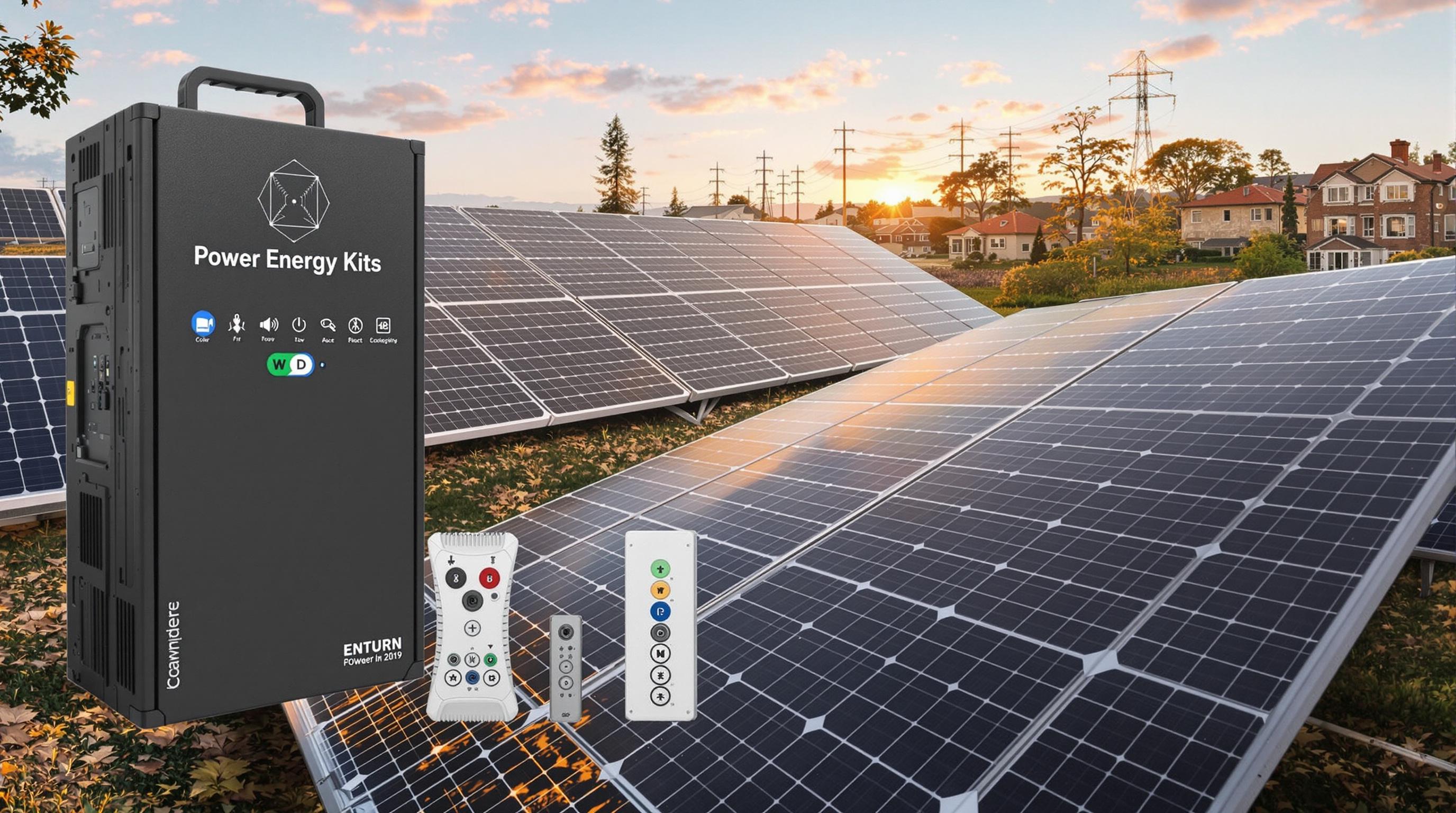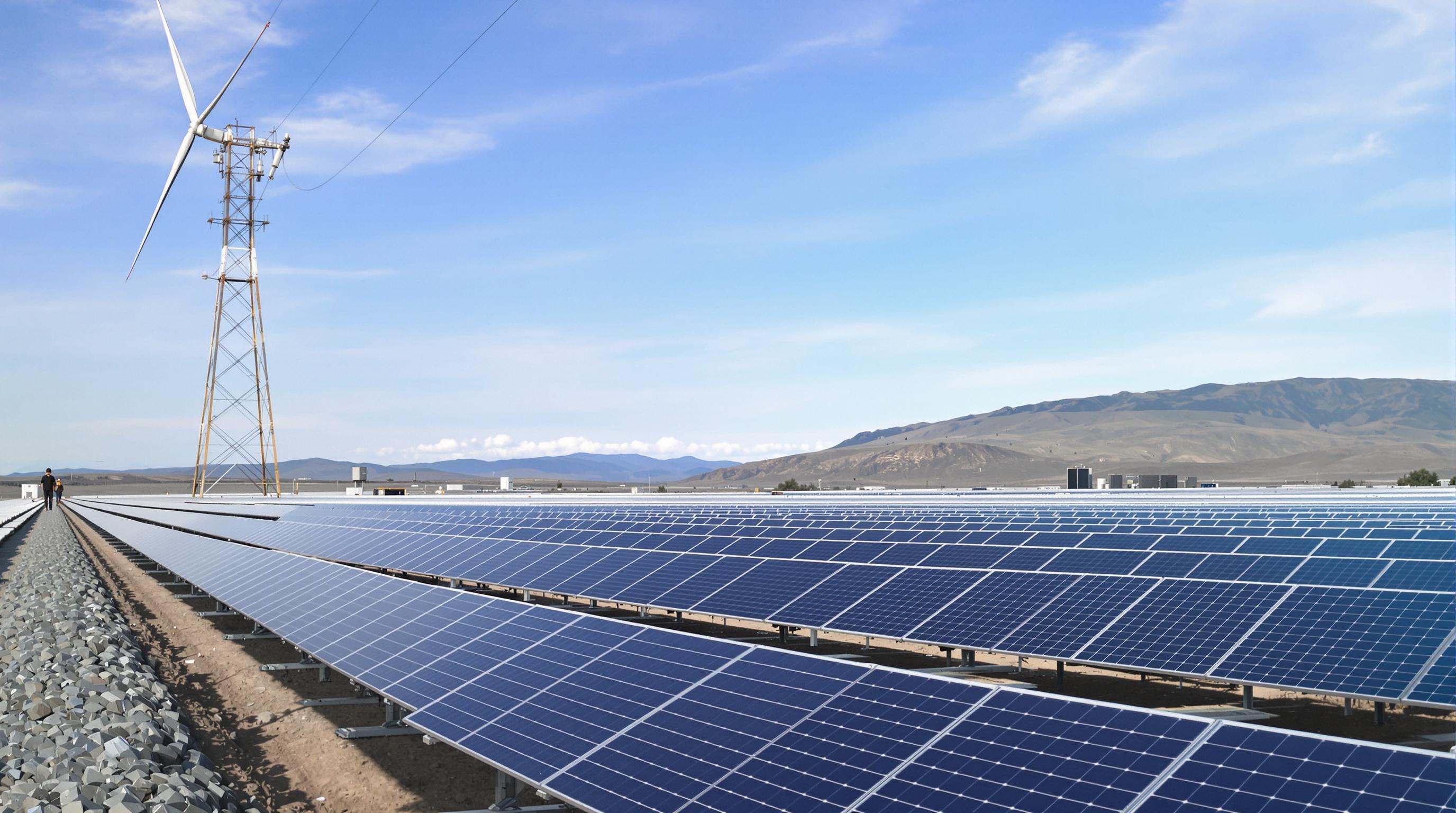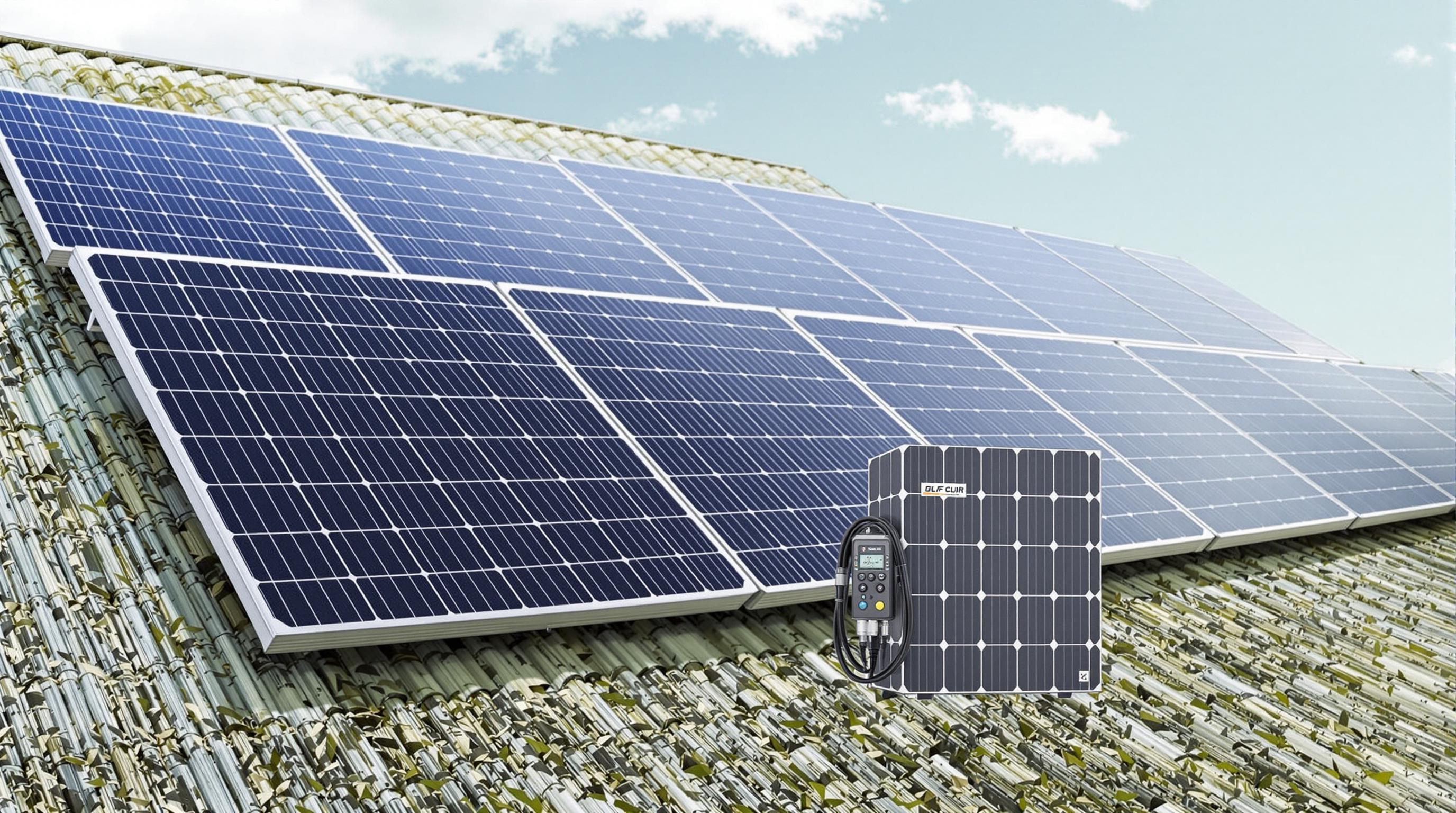Related Articles
- 7 Game-Changing Off-Grid Solar Kits from the Last 5 Years Ranked for Peak Performance and Reliability
- Uncovering the Role of Solar Warranty Disputes in Shaping Consumer Trust and Industry Accountability
- The Role of Behavioral Economics in Shaping Unexpected Solar Investment Decisions Among Rural Entrepreneurs
- Top 5 Emerging Solar Panel Brands Since 2019 That Outlast the Competition in Real-World Tests
- Top 6 Trailblazing Ground Solar Frames Unveiled Since 2019 Revolutionizing Installation Speed and Durability
- How Biodegradable Mounting Materials Could Revolutionize Eco-Friendly SolarRoof Installations by 2030
Top 9 Innovative Energy Kits Released Since 2019: Expert Comparison and Buyer’s Guide for Remote Power Solutions
Top 9 Innovative Energy Kits Released Since 2019: Expert Comparison and Buyer’s Guide for Remote Power Solutions
Top 9 Innovative Energy Kits Released Since 2019: Expert Comparison and Buyer’s Guide for Remote Power Solutions
In today’s fast-evolving world, reliable energy solutions for remote locations have become essential. Whether you are an outdoor enthusiast, a field researcher, or someone living off-grid, portable power kits offer a lifeline. Since 2019, several innovative energy kits have hit the market, combining clean energy technology with user-friendly designs. This article explores the top nine kits, comparing their features and helping you decide which fits your remote power needs best.
The selections focus on solar power, battery capacity, durability, and overall versatility. We will dive into their individual capabilities, practical use cases, and recent advancements that set them apart from competitors. Additionally, an expert’s comparison and buyer’s tips will round out the analysis to guide your purchase intelligently.
As experts stress, choosing the right energy kit depends heavily on your specific power requirements, portability preferences, and budget. Use this guide as a foundation for making a well-informed decision in tapping into clean, portable energy solutions designed for the future.
1. Goal Zero Yeti 6000X Portable Power Station
The Goal Zero Yeti 6000X is one of the most powerful portable power stations released since 2019. With a colossal 6,071Wh lithium battery, it is designed for extended off-grid power supply demands. It features multiple output ports, including USB-C, 120V AC, and 12V DC, making it versatile for powering everything from small appliances to charging multiple devices simultaneously.
This kit supports solar panel inputs up to 600W, which allows it to recharge efficiently when paired with Goal Zero’s Boulder solar panels. It integrates smart battery management, ensuring optimized charging and long battery life. This power station’s rugged build makes it suitable for outdoor adventures, emergency backup, and even small cabin power supply.
Experts appreciate Goal Zero for its user-friendly interface via an LCD screen giving precise charge and power usage data. However, its weight of about 106 lbs suggests that it’s better suited for stationary use rather than extreme portability in the field. The Yeti 6000X remains a top choice for heavy-duty remote power needs (Goal Zero, 2021).
2. Jackery Explorer 1000 Pro Solar Generator
The Jackery Explorer 1000 Pro quickly gained popularity for combining portability and power output effectively. It offers a 1,002Wh battery capacity and multiple output ports like USB-C, USB-A, 12V carport, and standard AC outlets. Its compact size (around 22 lbs) makes it easier to transport for camping trips or light off-grid applications.
One of the Kit’s innovations is its fast charging time — approximately 1.8 hours when connected to solar panels or AC power. This fast turnaround ensures minimal downtime for users needing continuous power. Jackery also provides dedicated solar panels that integrate seamlessly, optimizing energy harvest for outdoor environments.
According to reviews from outdoor experts, the Explorer 1000 Pro balances power and portability well, making it ideal for users who want solid battery capacity without lugging heavy equipment. However, it may struggle with very high energy appliances, so understanding the load capacity is important before purchase (Jackery, 2022).
3. EcoFlow Delta Pro Portable Power Station
EcoFlow’s Delta Pro is heralded as a game-changer in portable power solutions. With a massive 3,600Wh battery that can be expandable up to 25kWh, it appeals to users needing modular and customizable power setups. This system includes six 1800W AC outlets, USB-C, and DC ports, allowing you to power multiple devices concurrently.
The Delta Pro excels with its rapid recharge technology, reducing charge time to approximately 1.6 hours with solar or AC input. Its smart app connectivity feature gives users real-time battery monitoring and energy management remotely—a standout innovation in this space. Additionally, the device supports integration with home circuits, making it ideal for home backup.
Experts recommend the Delta Pro particularly for those seeking long-term off-grid energy independence combined with smart home integration features. Its advanced battery management and modularity add up to a future-proof investment (EcoFlow, 2023).
4. Anker 757 PowerHouse
Released recently, the Anker 757 PowerHouse introduces a blend of high wattage and fast recharge speeds. Its 1,024Wh battery and 1,500W continuous output cover mid-range power needs efficiently. Anker’s robust build and multiple outputs, including two USB-C Power Delivery ports, make it versatile and compact at around 30.9 lbs.
This energy kit recharges fully in roughly 1.5 hours using AC or solar input, which increases its appeal for remote usage scenarios demanding quick recovery. It also integrates a touchscreen for easy control and diagnostics, which improves user experience significantly. The Anker brand is known for reliability and quality electronics, adding to its reputation.
Power users looking for a balance between cost, power, and portability find this model very appealing. However, due to its mid-level capacity, it fits more casual or weekend adventurers than continuous heavy users (Anker, 2022).
5. Bluetti EB3A Portable Power Station
Bluetti’s EB3A is an ultra-portable energy kit optimized for light use and travel. Weighing only around 9.7 lbs, it houses a 268Wh lithium-ion battery with fast charging capabilities and multiple output options including USB-C, AC (300W), and wireless charging. Its portability makes it ideal for further short trips where minimal power is needed.
What sets the EB3A apart is its advanced safety certification, including UL and CSA approvals, which ensure reliable operation. The unit also incorporates a quiet cooling system, making it unobtrusive in quieter remote environments. Its 542Wh max solar input enables solar recharging in under 3 hours under ideal conditions.
Buyers who value lightweight, portable solutions for charging phones, drones, or laptops will favor the Bluetti EB3A. While not suited for high-draw appliances, its smallest size and competitive pricing fill an important niche (Bluetti, 2021).
6. Renogy Lycan Powerbox
The Renogy Lycan Powerbox blends portability with off-grid viability. It offers a 1,075Wh battery pack, 1200W pure sine wave inverter, and numerous ports including USB, AC, and DC outputs. Its design focuses on ruggedness for outdoor conditions, with IP65 dust and splash resistance.
This kit supports solar panel connectivity and fast charging, with the added option of vehicle DC charging. Built-in handles and a compact structure enhance transportability, making it suitable for work sites, camping, and emergency situations. Renogy is a trusted brand in solar technology with a history of solid product support.
Experts suggest the Lycan Powerbox for users needing dependable power in harsh environmental conditions, thanks to its durability and multi-mode charging flexibility. However, it is bulkier than some competitors, so portability depends on individual use cases (Renogy, 2022).
7. Suaoki G500 Portable Power Station
The Suaoki G500 is a reliable medium-sized energy kit that offers 500Wh battery capacity and a 300W pure sine wave inverter. It features multiple output ports and an easy-to-read LCD screen showing battery status and output power levels. Suaoki focuses on user convenience and affordability in this model.
Its solar recharging capability complements its use for camping, emergency backup, and small devices running off-grid. The G500 also supports fast recharging via AC or car adapter, adding to its versatility. Its size and weight (around 13 lbs) keep it within manageable portable limits.
While not suitable for heavy loads, this kit suits users prioritizing budget and moderate power needs. It holds a strong position in entry-level portable energy kits and is well-reviewed on e-commerce platforms for home and outdoor use (Suaoki, 2021).
8. Jackery Solar Generator 1500
Another offering from Jackery, the Solar Generator 1500 provides 1,534Wh capacity with a 1,800W pure sine wave inverter. It supports up to 500W solar input and can recharge in about 4 hours using solar panels or around 7 hours using AC outlets. This generator strikes a balance between performance and portability with a manageable weight of 33 lbs.
The generator’s smart LCD screen monitors input/output and battery status, while multiple outlets provide flexibility for a variety of devices. It is a popular choice for campers, tailgaters, and backup power, with durability designed for outdoor use. Integration with Jackery’s 100W solar panel options ensures easy expansion.
Experts recommend the Solar Generator 1500 for users needing consistent mid-range power output with respectable portability. Its higher price point reflects the advanced feature set and robust performance (Jackery, 2019).
9. EcoFlow River Max Portable Power Station
The EcoFlow River Max is a popular and expandable power station. It starts with a 288Wh battery, which can be doubled to 576Wh with an additional battery pack. This modular approach allows users to customize battery capacity on demand. The unit weighs about 11 lbs, emphasizing portability.
It features multiple output ports, including USB-C, USB-A, AC, and DC, with a fast charging time of under an hour on AC outlets. Solar panel compatibility further enhances its off-grid operational capability. The EcoFlow app extends functionality with remote monitoring and control.
For buyers unsure about fixed capacities, the River Max offers flexibility and upgradability, making it an excellent entry point into portable energy kits. Its lightweight design suits outdoor activities and small-scale emergencies efficiently (EcoFlow, 2020).
Expert Comparison and Buyer’s Guide for Remote Power Solutions
Comparing these nine innovative energy kits highlights key factors: battery capacity, portability, charging speed, output variety, and ruggedness. Heavy-duty users focusing on extended autonomy will benefit most from high-capacity units like the Goal Zero Yeti 6000X or EcoFlow Delta Pro. Conversely, light travelers or daily carry enthusiasts may prefer the Bluetti EB3A or EcoFlow River Max for their compactness.
When selecting a kit, consider the wattage of your devices and the duration you expect to be off-grid. Kits with expandable batteries offer future-proof flexibility. Fast recharge capabilities are critical in environments where sunlight or other charging options are limited. Also, the inclusion of smart management apps improves ease of use and energy oversight.
Durability and weather resistance should not be overlooked, especially for outdoor usage. Brands like Renogy and Goal Zero lead in robust designs, while Jackery and Anker emphasize user-friendly interfaces and portability. Ultimately, your budget, power requirements, and specific application will guide the best choice. Research product reviews and warranty terms to ensure long-term satisfaction.
Sources:
Goal Zero (2021) Product Specifications
Jackery (2019-2022) User Manuals and Reviews
EcoFlow (2020-2023) Product Releases and Technical Details
Bluetti (2021) Safety Certifications
Renogy (2022) Product Durability Tests
Suaoki (2021) Consumer Feedback
Anker (2022) Product Announcements




